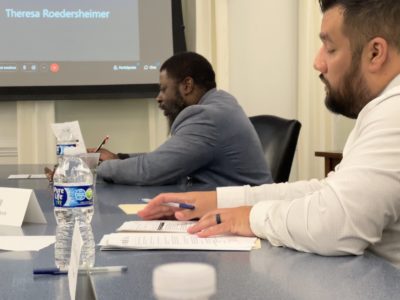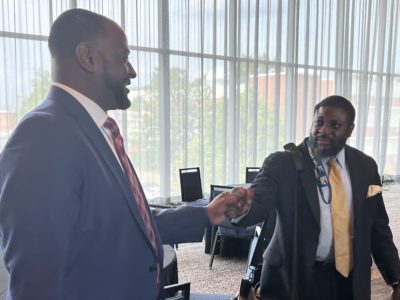
|
|
The office of Gov. Roy Cooper is convening educators, district leaders, and stakeholders throughout the state to highlight best practices to recruit, prepare, support, and retain educators of color.
With the support of the Hunt Institute, the DRIVE Task Force made its first of four statewide tour stops last week in Edgecombe County to learn about “Grow Your Own” models and other initiatives developing in the area.
“For them to come here to visit, to enjoy, to take time out to select us as a part of their tour, its meaningful. It makes you feel proud that we’re in a position to be looked at; to be examined.”
Dr. Valerie Bridges, Edgecombe County Public Schools superintendent
Additionally, the Task Force is concentrating on establishing a succession plan for their work to continue given the executive order set to expire at the end of this year.
About the DRIVE Task Force
For over three years, the Develop a Representative and Inclusive Vision for Education (DRIVE) Task Force has been engulfed in matters of equity and inclusion in education. The task force is made up of parents and guardians, K-12 educators, state and local government personnel, and both UNC System and community college personnel.
In 2021, the team released recommendations for how to increase the racial, ethnic, and linguistic diversity of the state’s educator workforce. Now, they are committed to being in communities to discover organizational and programmatic assets that can advance the goal.
Each tour stop has two parts, consisting of an evening Educators of Color Networking Event and the task force meeting the following morning.
Letter to PEPSC
Attendees first reviewed and approved the final letter to be sent to the Professional Educator Preparation and Standards Commission (PEPSC) and the State Board of Education.
As mentioned in the document below, the task force composed the letter to “highlight the positive impact that the Pathways proposal could have on teacher diversity and to identify opportunities to align the professional pathways structures more closely with DRIVE Task Force Recommendations.”
Read the letter below:
Growing the next generation of educators
Gathered at Tarboro Brewing Company last week, community members, teachers, and school leaders engaged in a night of conversation and connection building.
Many of the same faces, and more, convened at Edgecombe Community College’s Center for Innovation for presentations on the best practices from the North Central and Northeast regions and Task Force subcommittee reports.
These are the programs that were surfaced:
Scholar Teachers Program
Edgecombe County Public Schools (ECPS) has established a program to grow their own teachers.
The district created a foundation to manage funding for the program. The foundation’s Future Teacher Fund is “dedicated to funding the Edgecombe Early College High School Scholar Teacher program to support diversity in education in North Carolina, to cultivate a pipeline of the next generation of teachers and build the economic and educational resiliency of our North Carolina communities by cultivating home-town talent.”
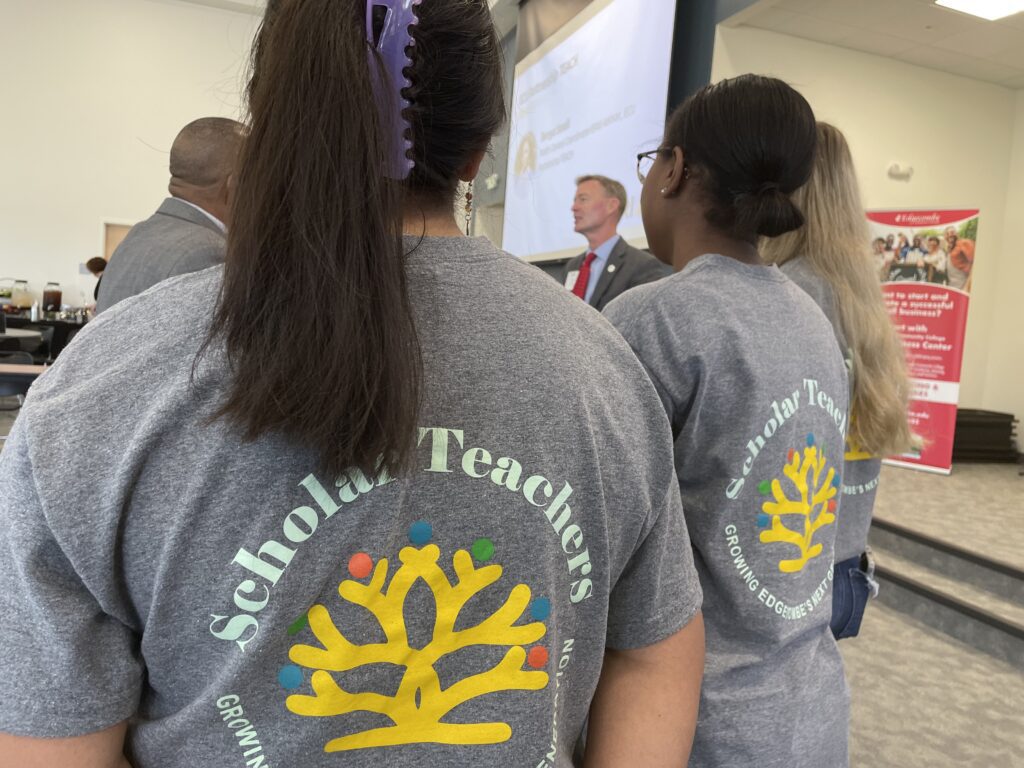
Corning’s Office of Racial Equality and Social Unity (ORESU), along with Anonymous Trust and Barnhill, are among the sponsors for the program. When sharing about Corning’s partnership with ECPS, Dr. Millicent Ruffin, the ORESU’s director of community affairs, expressed that all parties involved share a passion for “getting quality educators in the classroom and helping them to do that debt free.”
As part of the scholar teacher program, students not only obtain 200 hours of field experience and their associates degree, but also financial support through the grant, receiving $10,000/year with their transition to their preferred North Carolina university. After graduating, committing to three years of teaching in Edgecombe County will allow the financial support to be repaid.
N.C. Teacher Cadet Program
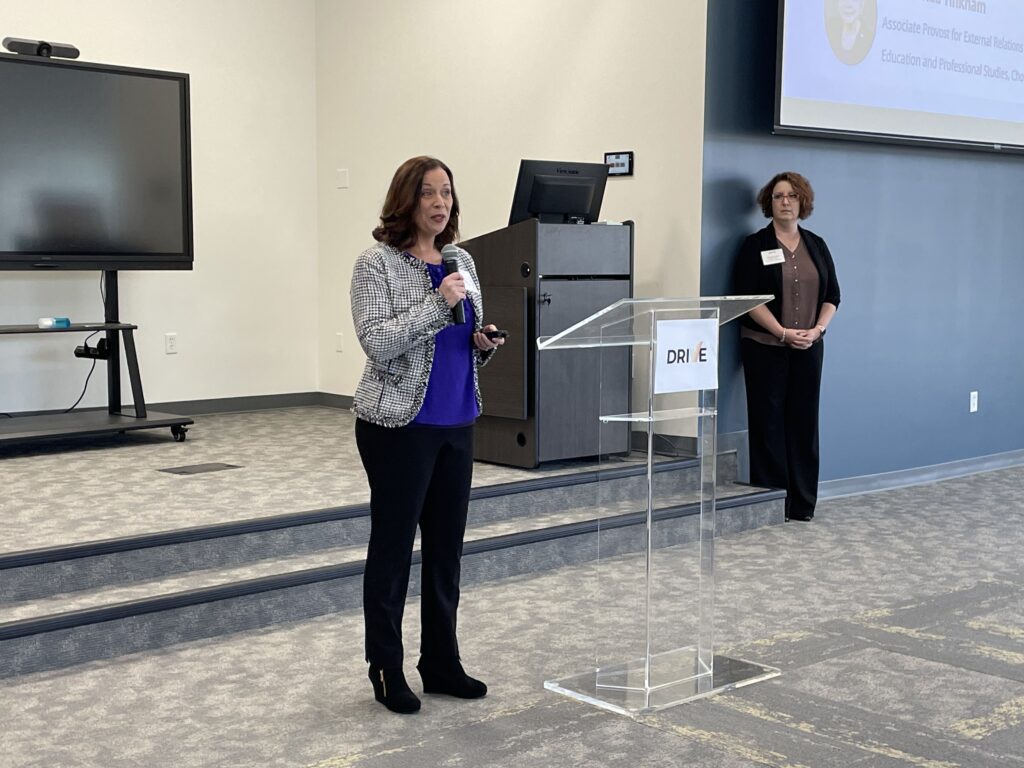
The North Carolina Teacher Cadet Program is another curriculum established under the “Grow Your Own” philosophy.
“Our goal is to really have our students, not just experience the program and the curriculum, but to experience it in their community,” Teacher Cadet State Coordinator Dr. Gwynne Shoaf said, “to really know the structures of the educational system in their community and find a place where they can give back.”
The program is offered as a high school course, aimed at giving juniors and seniors hands-on teaching experiences. The North Carolina Foundation for Public School Children utilizes the program to continue to nurture the next generation of educators.
ECU Partnership TEACH
East Carolina University’s College of Education is focused on increasing the number of high-quality teachers in the region. They offer a 100% online degree program where students begin courses at the community college level, then transfer to one of four teaching programs provided by the university. Partnership TEACH allows students to be placed in public school classrooms in or near their home communities to engage in learning experiences that correlate to their coursework.
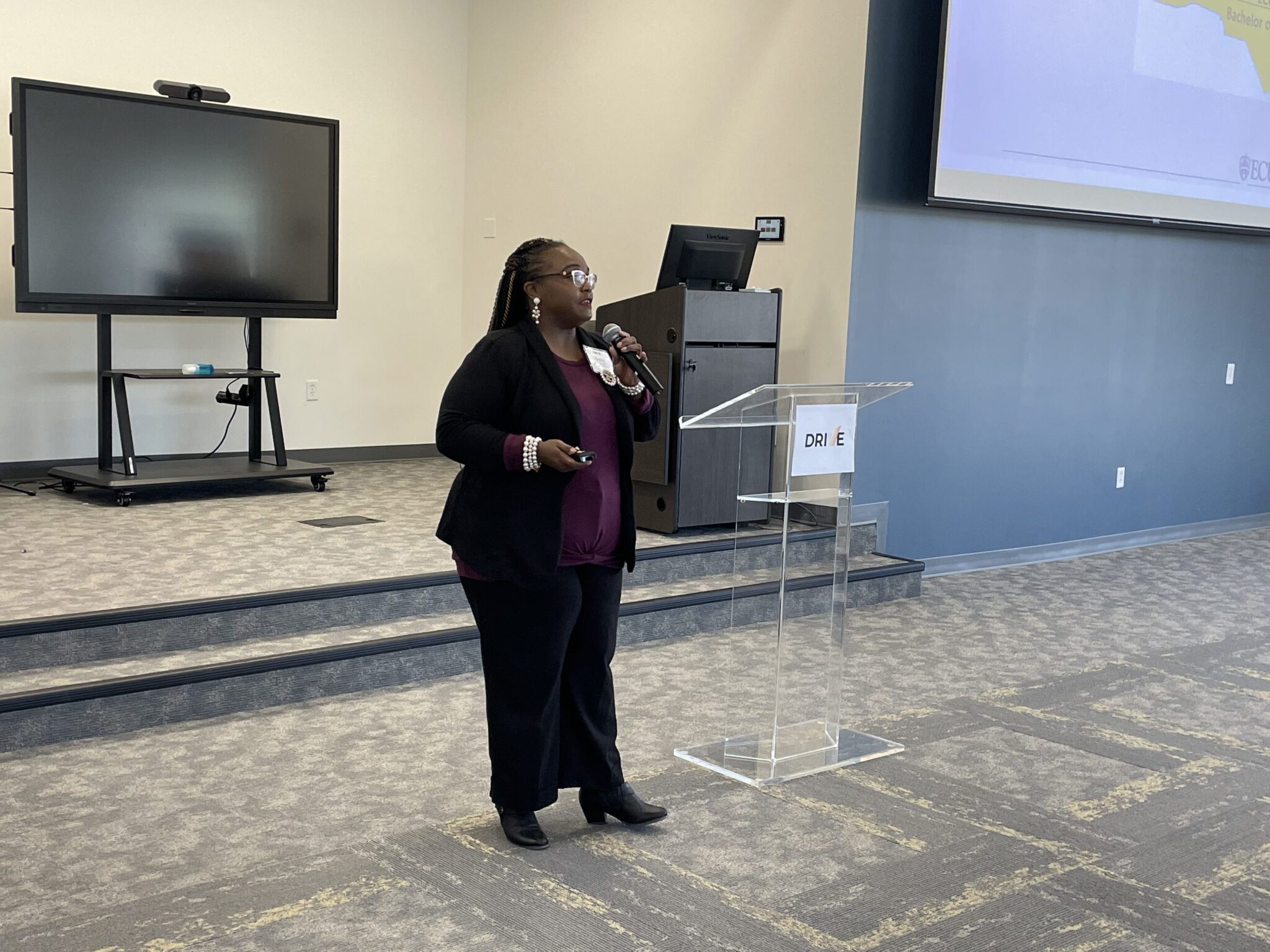
NELA Program and Transformational Scholars
North Carolina State Educational Leadership Academy (NELA) focuses on principal preparation, with the aim of increasing “student achievement by preparing and retaining principals in high-poverty, hard-to-staff, and historically low-performing schools.”
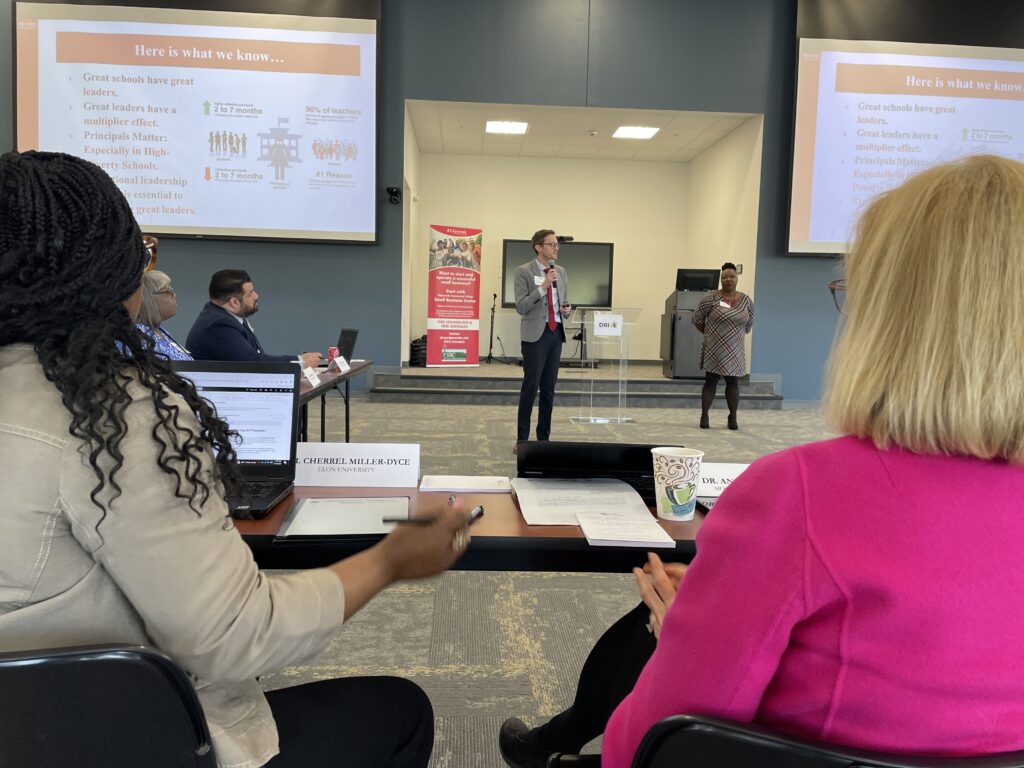
According to their website, since the first cohort in 2012, the program has graduated over 140 principals, assistant principals, and other school leadership. The College of Education at N.C. State University has been identified as having a research-based, nationally recognized model with the goal of strategically elevating school leadership in North Carolina public schools.
Looking Ahead
The next three stops on the DRIVE Task Force Tour are:
- May 18-19 in Pembroke
- Sept. 21-22 in Cullowhee
- Nov. 16-17 in Winston-Salem




